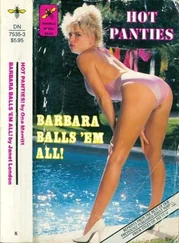The largest financial beneficiaries of this money would be specialized biotechnology companies. The bill sailed through both houses of Congress and was signed by President Bush on July 21, 2004. But in the weeks before Bush acted, several congressmen made highly profitable "bets" on the companies that would benefit.
Congressman Jim McDermott of Washington State bet big on one small biotech company as Project Bioshield was working its way through the House. McDermott, a member of the powerful Ways and Means Committee and a medical doctor by training, took more than 10% of his entire investment portfolio at Wells Fargo and bought shares in a small Canadian company called ID Biomedical on June 7, 2004, just weeks before he voted for the bill. The firm just happened to produce disease vaccines, exactly the kind that Project Bioshield was looking to fund. Over the next several years, the firm would do a considerable amount of business with the federal government. With the passage of Project Bioshield, ID Biomedical would secure $8 million from Washington to develop a plague vaccine. 25McDermott's timing was nearly perfect. He bought 2,000 shares at $10 a share, paying a total of $21,021, according to his brokerage statement. He sold the stock a little more than a year later, on September 21, 2005, nearly tripling his money, cashing it in for $58,837. This represents a return of 180%. 26
McDermott was not alone. Congressman Amo Houghton, Republican of New York, saw his investment portfolio mushroom with biodefense medical stocks in the weeks before Project Bioshield became law. His investment fund bought about $30,000 in Avant Immunotherapeutics (now called Celldex) on July 15, 16, 19, and 21, just days before President Bush signed the bill. The company was developing next-generation anthrax-fighting drugs and would do significant business through Project Bioshield. Houghton also gobbled up shares in Nanogen, a biomedical company, twice, on July 12 and 15. And he bought $17,355 in Northfield Labs on July 14 and another $16,792 the next day. Northfield was developing blood-replacement alternatives and would get grants from the U.S. Army through Bioshield. On July 15, Houghton bought almost $20,000 of Hollis-Eden Pharmaceuticals, which was developing disease management technologies. On the same day, he bought almost $35,000 in Maxim Pharmaceuticals, which produces antiviral drugs. The next day, July 16, he went back for more shares of Hollis-Eden, bringing his total holdings to almost $40,000. 27All of these companies would benefit from the infusion of federal dollars. If it's possible to overdose on drugs and make money from it, that is what Houghton managed to do. 28
Before he served in Congress, Houghton had a long career in corporate America as CEO of Corning and as a member of several corporate boards. If, as a corporate CEO, he had executed these trades based on insider information—concerning, say, a merger—it might have been problematic. It certainly would have received the attention of the SEC. But as a member of Congress, this sort of behavior is acceptable and commonplace.
We despise professional athletes who bet on their own games. Why don't we feel the same way about politicians who bet on the outcome of legislation? The stakes are surely higher.
2. CRISIS FOR ALL, OPPORTUNITY FOR SOME
IN THE SUMMER and fall of 2008, the world economy hovered on the brink of catastrophe. A combination of too much bad debt and a burst housing market bubble threatened to push the American economy over the edge, with much of the rest of the world likely to follow. In Washington, D.C., dramatic and historic decisions involving trillions of dollars were made in rapid succession in an effort to contain the crisis. The Permanent Political Class played a central role in the drama as the government broke precedent after precedent.
For members of Congress, the crisis meant momentous votes, long hours in closed-door meetings, and countless phone calls with federal officials. It also meant regular private consultations on both budgetary and monetary decisions. It meant private conversations with Wall Street and banking executives. It meant emergency measures, including authorizing the spending of $700 billion in taxpayer money in an attempt to create liquidity in financial markets—the Troubled Asset Relief Program, a.k.a. TARP.
And for certain members of Congress, it also meant trading stocks at critical times.
One of those who played a central role in governmental decisionmaking during the crisis was Congressman Spencer Bachus, then the ranking Republican on the House Financial Services Committee. (When Republicans retook control of the House of Representatives in 2010, Bachus became chairman.) It was the Financial Services Committee through which all bailout and other financial legislation had to move. When President George W. Bush discussed the passage of the Emergency Economic Stabilization Act in the midst of the crisis, he praised six members of Congress for their work on the issue, Bachus among them. 1But beyond the formal hearings on the legislation, Bachus was regularly involved in private meetings and phone conversations. As he recounted later, he "received repeated Saturday or Sunday calls announcing intervention after intervention" by the government in the financial markets. 2Henry Paulson, who was the Treasury secretary at the time, recounts in his memoir numerous closed-door meetings at which Bachus was a participant. 3
As he was having those high-level discussions, however, he was also aggressively buying and selling stock options. For his efforts, Bachus netted tens of thousands of dollars in capital gains, while most Americans watched their portfolios plummet. A lawyer and a former state senator, Bachus has served in Congress since 1993. He is not a wealthy man. According to his financial disclosure forms, his net worth is less than $1 million. But he is an active stock trader. He is particularly active when it comes to trading options, which is a relatively inexpensive way to bet that a particular stock, or the broader market, will go up or down.
If you think a stock will fall from its current price, you can buy an option to sell it at that current price, without spending the money to own the stock itself. If the price drops from, say, $4 to $2, you can buy it at $2 and immediately exercise your right to sell it at $4. If you bet wrong, you can let your option expire without ever buying the stock. Bachus has used this investment strategy repeatedly to supplement his salary. One year, for example, he earned as much from his options trading as he did from his congressional salary. Here's the rub: all too often his trades coincided with his congressional work.
From July 2008, when the first murmurs of the crisis were heard, to the dark days of November, with international markets in near free fall, Bachus engineered no less than forty options trades, betting that the market, a sector of the market, or an individual company would go up or down at critical times.
Financial markets were experiencing the greatest volatility on record. 4Trillions of dollars in stock profits were being washed away. But for Bachus it was different. According to his financial disclosure statements, Bachus netted as much as $50,000 in capital gains by aggressively playing the market during this volatile period. And he netted tens of thousands more in early 2009, when financial reforms were put in place. What makes these results impressive is the fact that options trading is extremely risky. There is a rule of thumb in the financial industry that 75% of options are worthless when it comes time to redeem them, and that 80% of options traders lose money.
In a speech he gave shortly after the financial crisis abated, Bachus noted that the political class was looking at policy and making decisions on "how the markets were reacting." 5Unfortunately, Bachus was also trading on that same information.
Читать дальше











